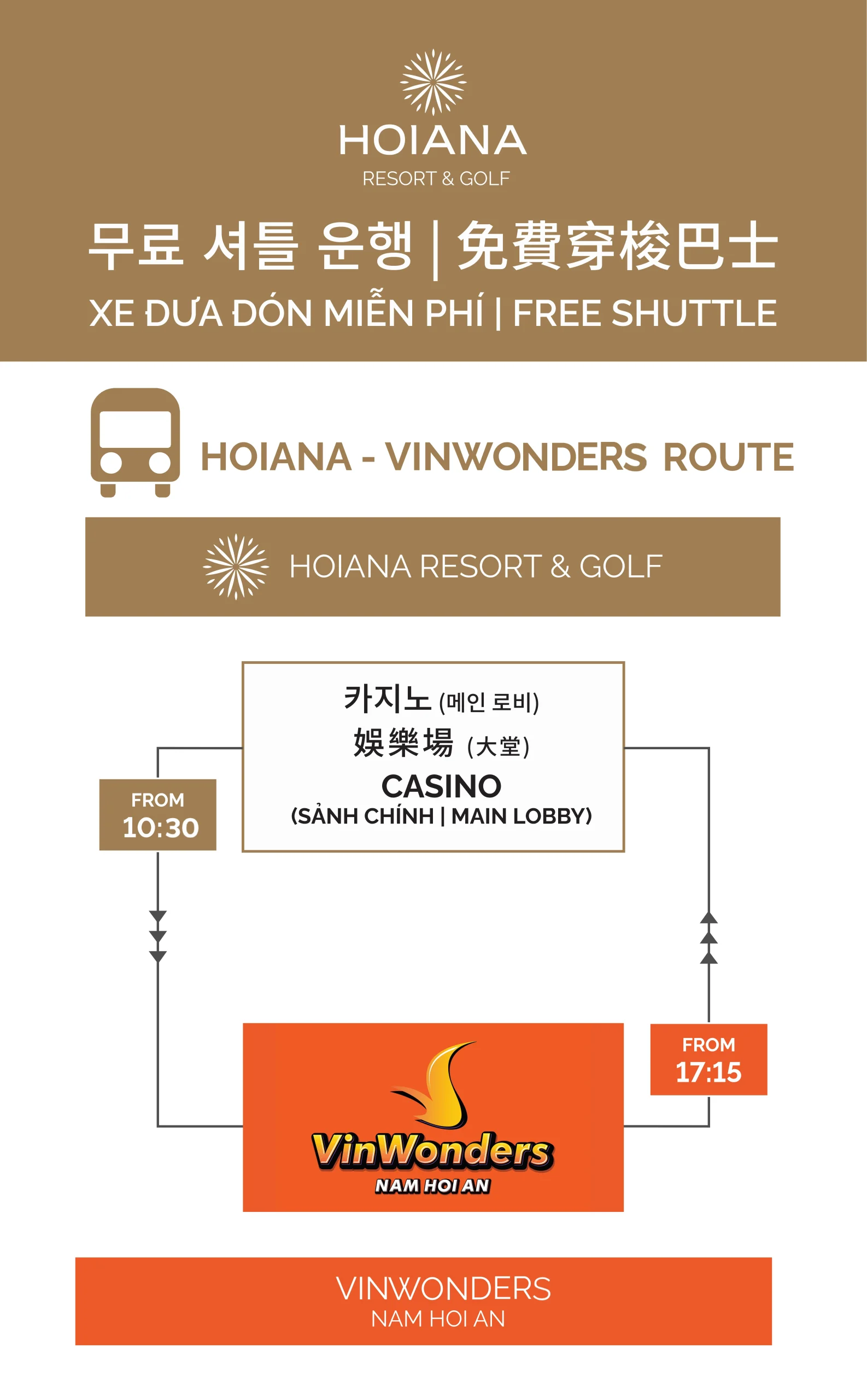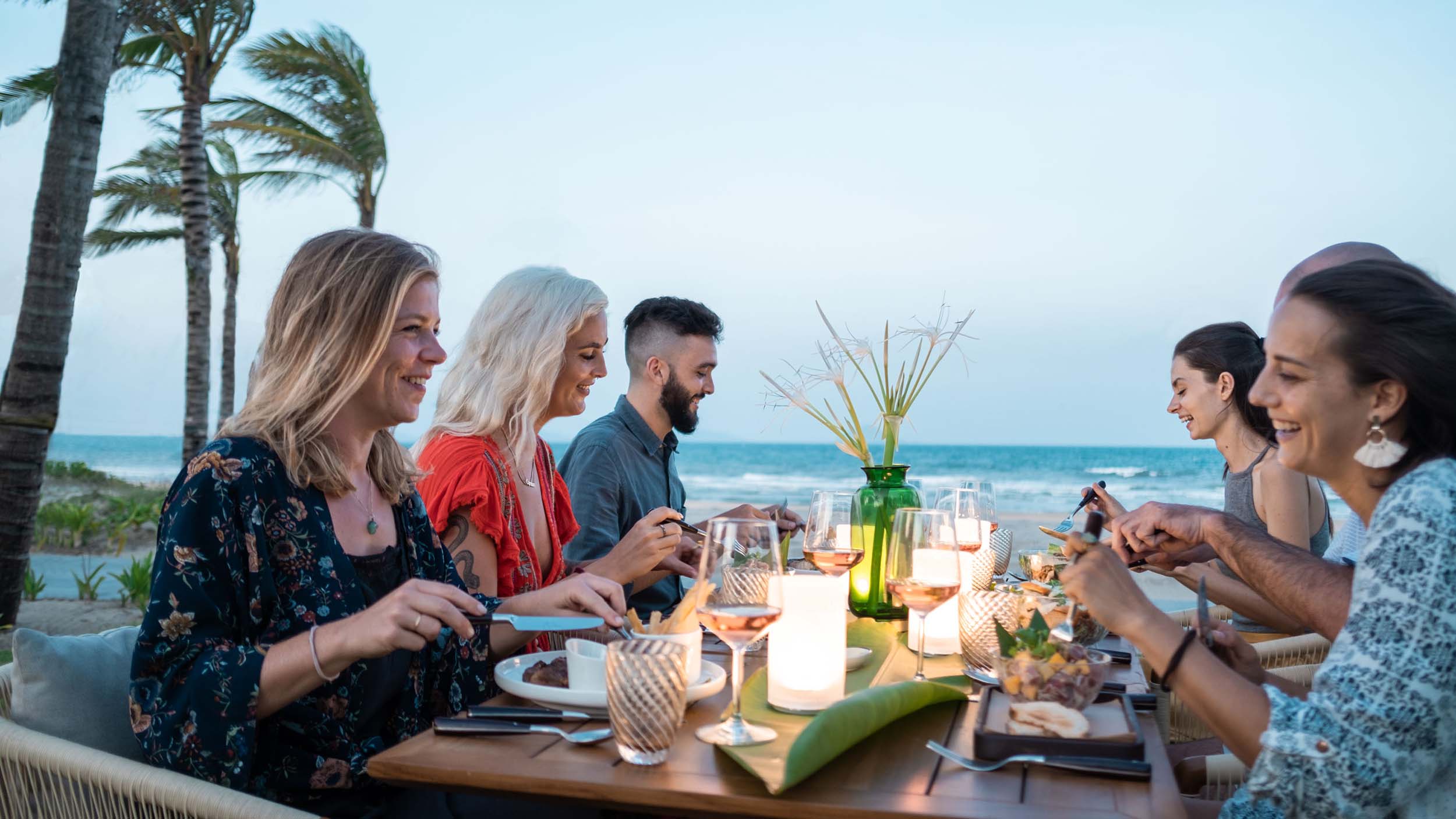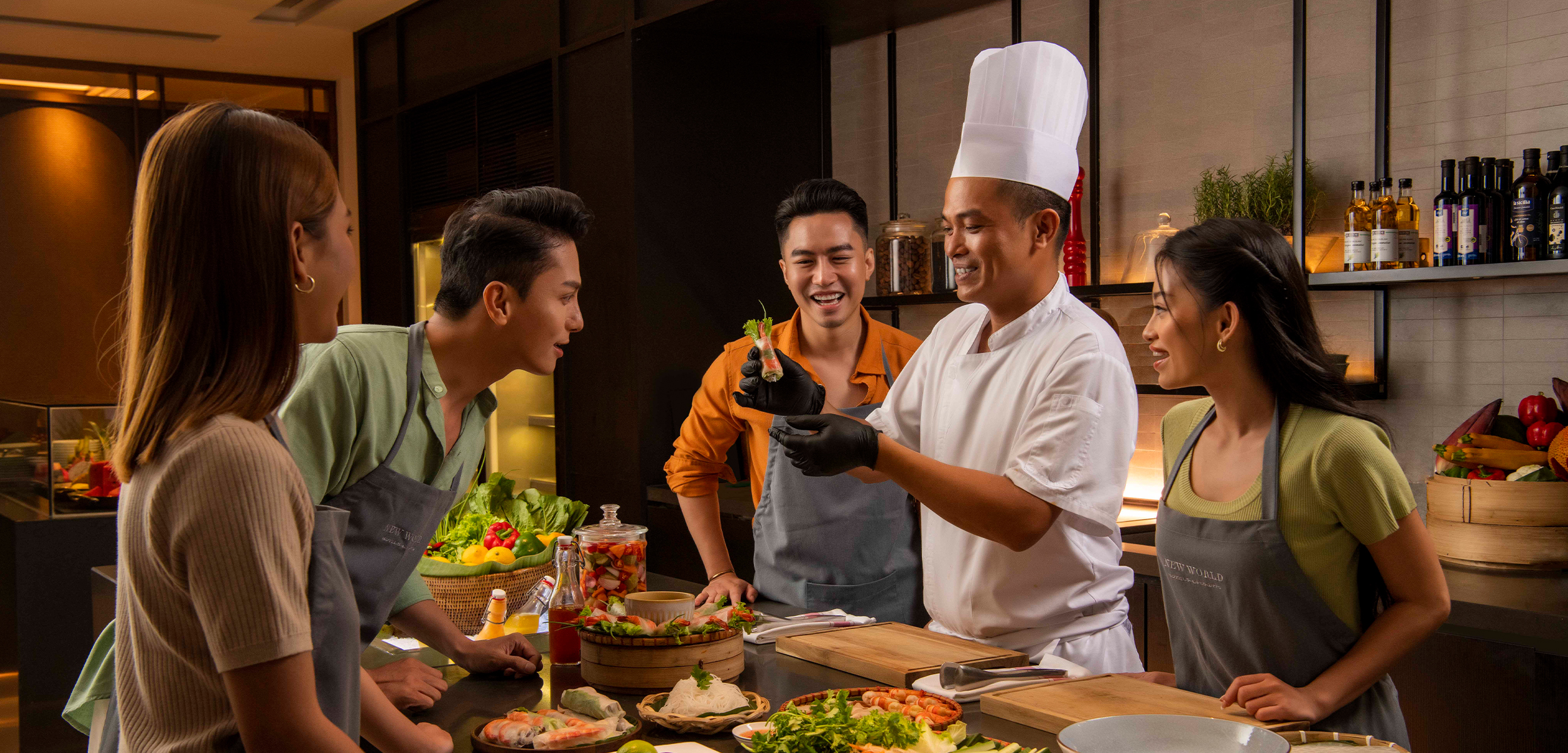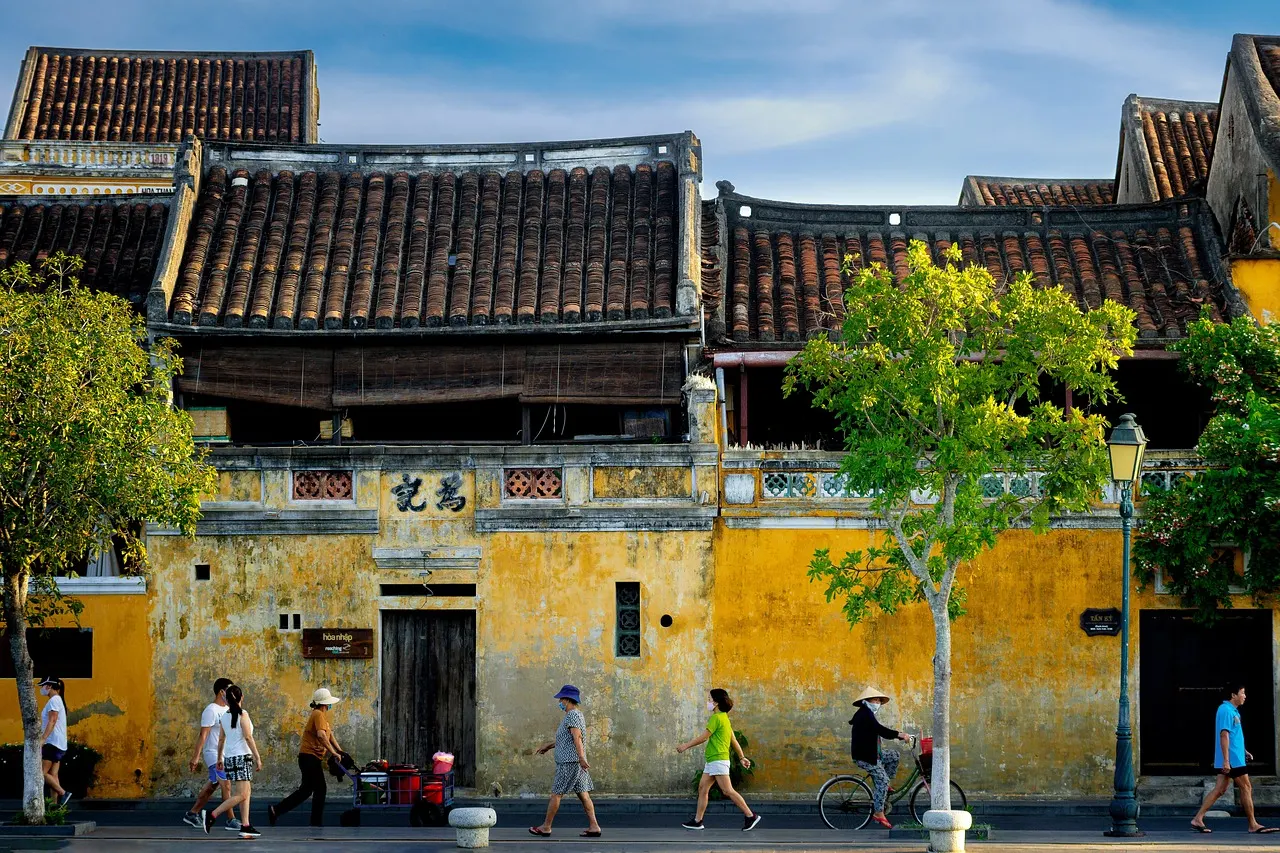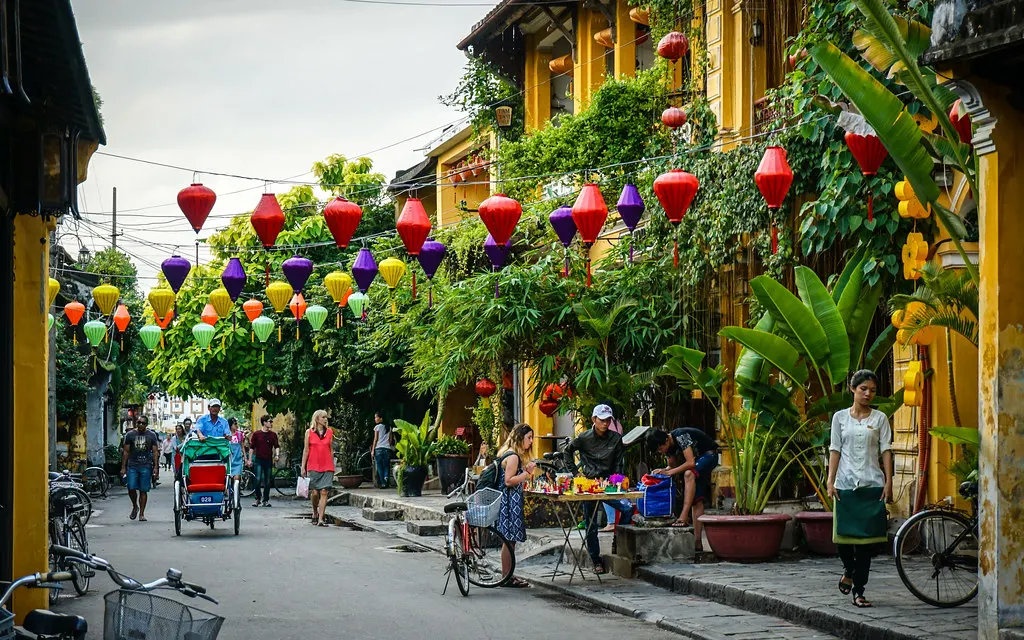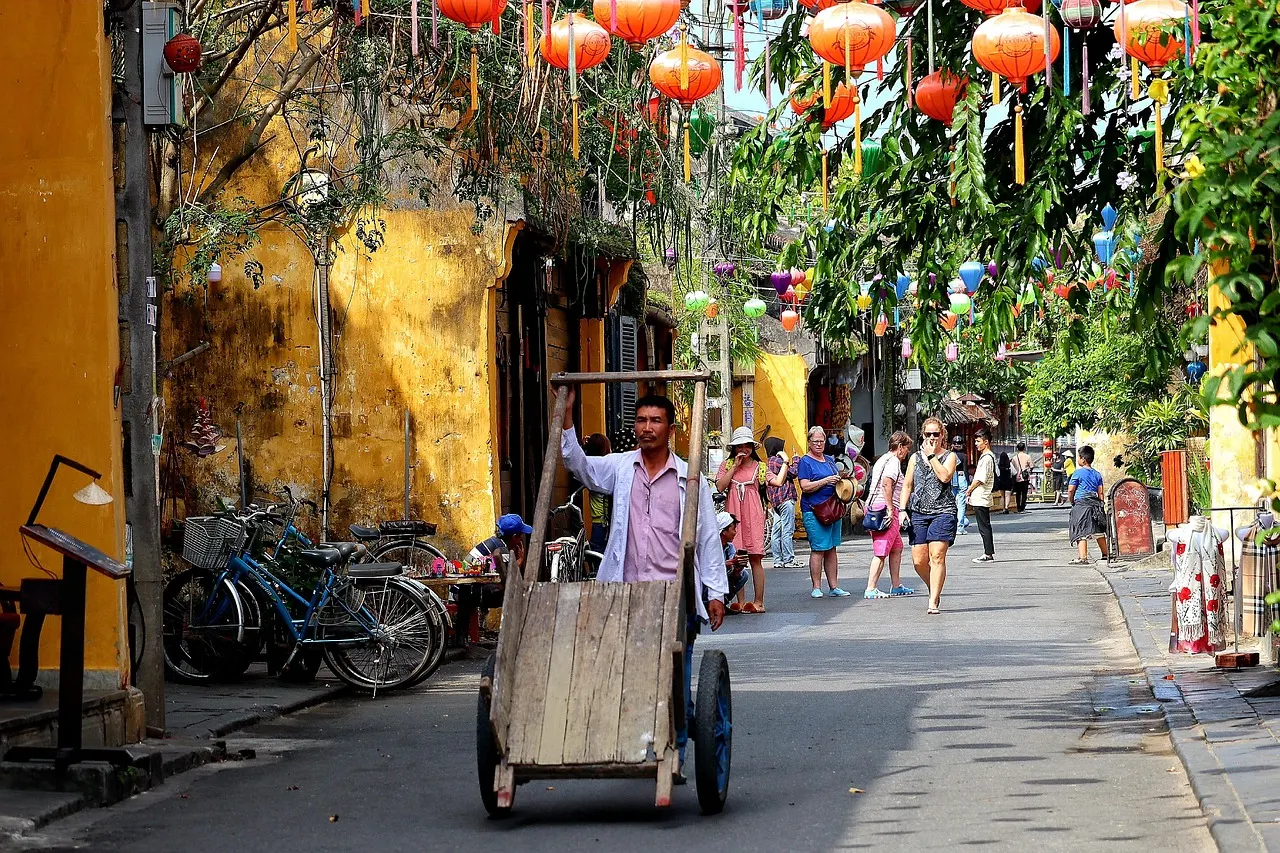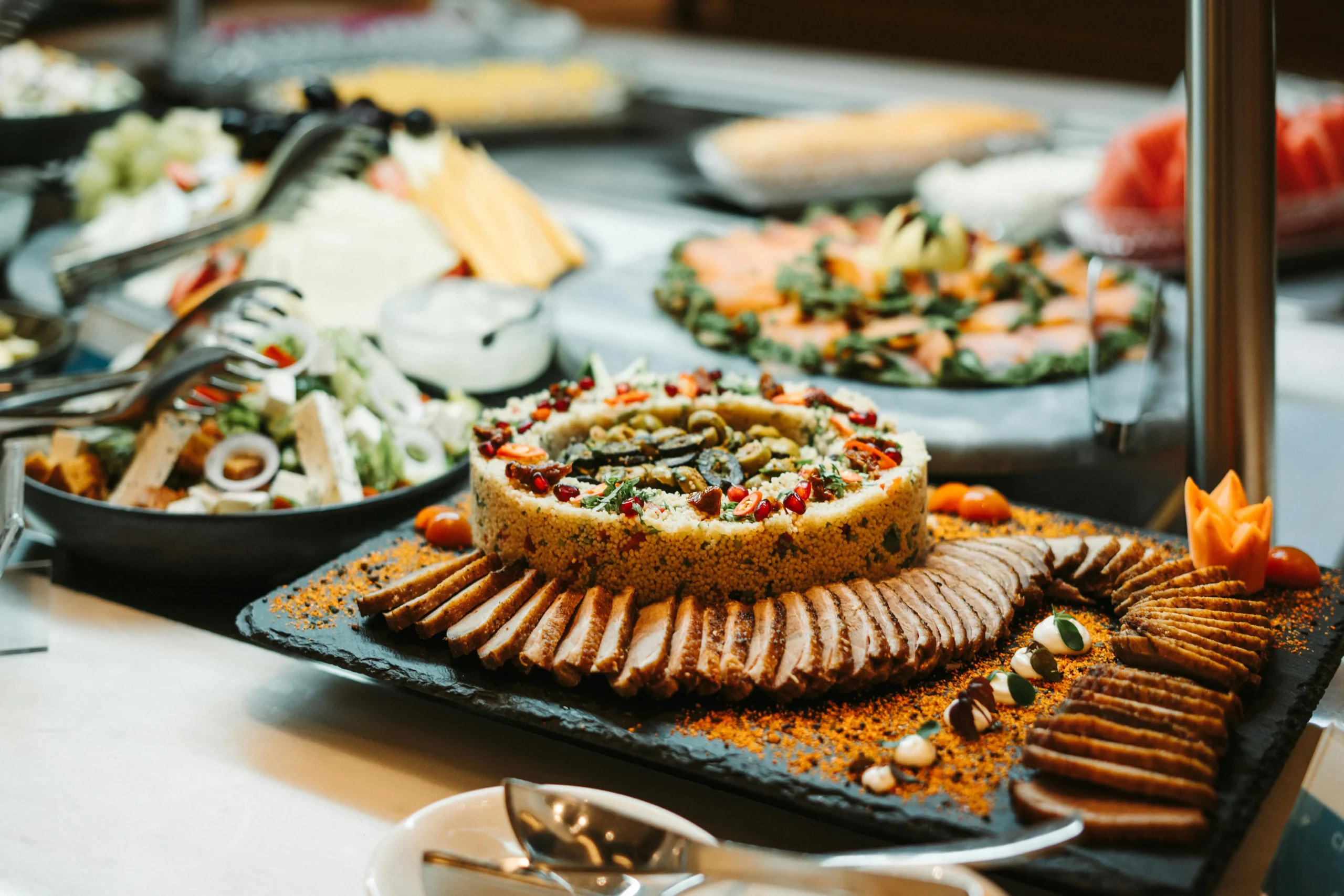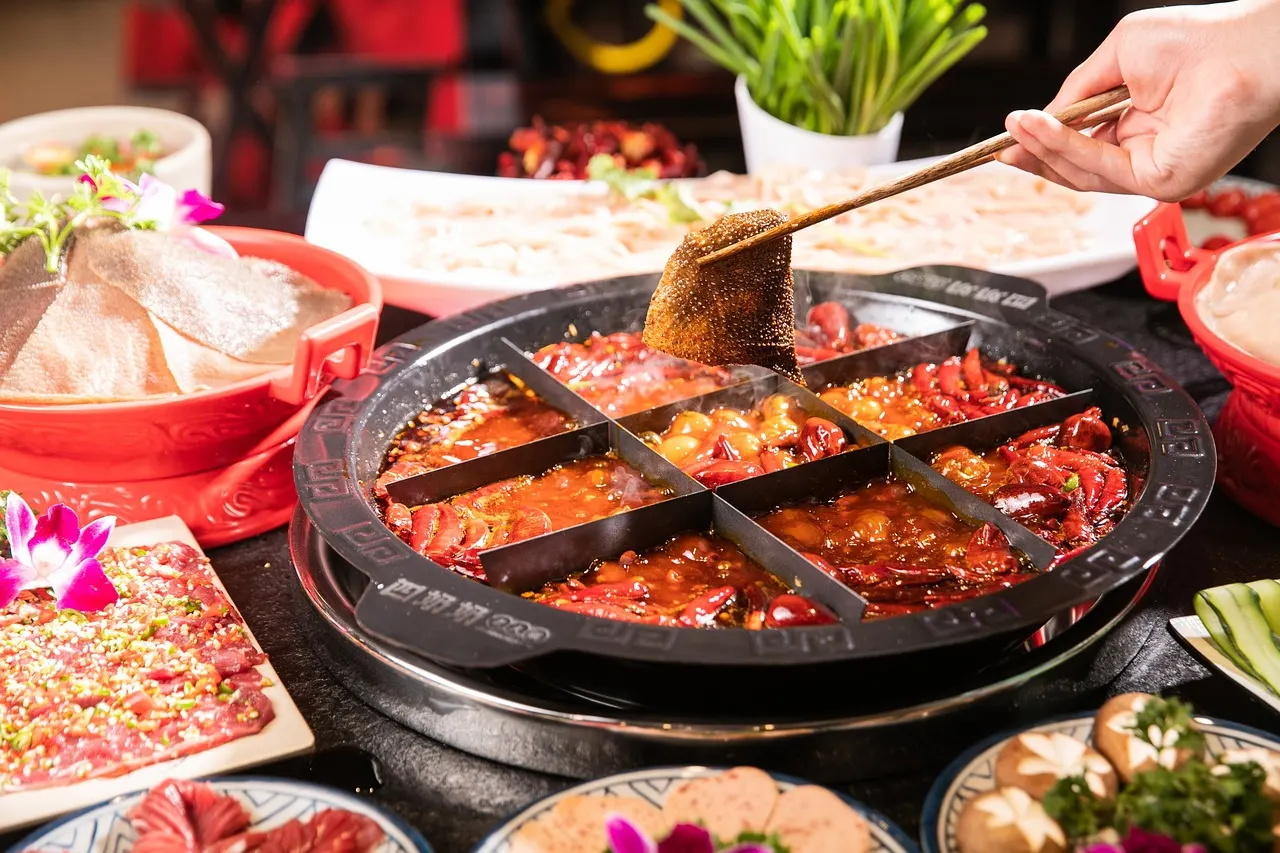Vietnam’s culinary landscape is as diverse and vibrant as its geography. From the mountainous north to the fertile delta of the south, each region offers unique flavors that contribute to the rich tapestry of Vietnamese cuisine. In this guide, we’ll explore ten typical foods of Vietnam that you absolutely must try on your next visit. These dishes aren’t just popular among tourists – they’re beloved staples in local households and street-side eateries across the country.
The Heart of Vietnamese Cuisine: Typical Food in Vietnam
Pho: The Soul of Vietnam in a Bowl
Let’s start with the most iconic Vietnamese dish: PHO. This aromatic noodle soup is often described as Vietnam’s national dish, and for good reason. Its origins trace back to the early 20th century in northern Vietnam, but it has since become a beloved staple throughout the country.
Pho consists of a flavorful broth, rice noodles, herbs, and meat – typically beef (pho bo) or chicken (pho ga). The magic lies in the broth, which is simmered for hours with x, spices, and aromatics like cinnamon, star anise, and cloves. The result is a complex, comforting flavor that’s both familiar and exotic.
When you order pho, you’ll often receive a plate of fresh herbs and bean sprouts on the side. Don’t hesitate to add these to your bowl – the interplay of textures and flavors is part of what makes pho so special. A squeeze of lime and a dash of chili sauce can further enhance the taste to your liking.
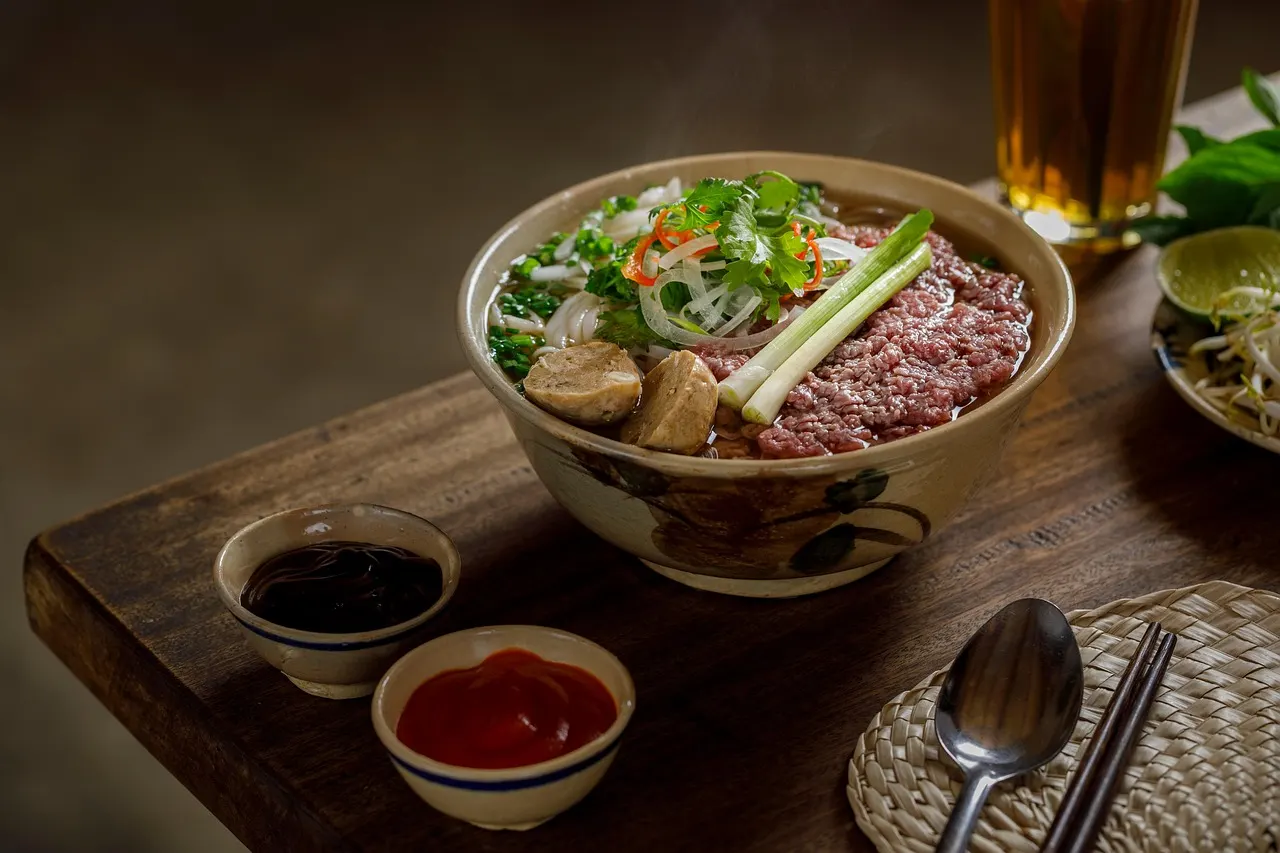
Banh Mi: The Perfect Fusion Sandwich
Banh mi is a prime example of how Vietnam’s culinary history has been inspired by foreign influences. This sandwich, born in the 20th century, combines Western and Eastern elements to create something uniquely Vietnamese.
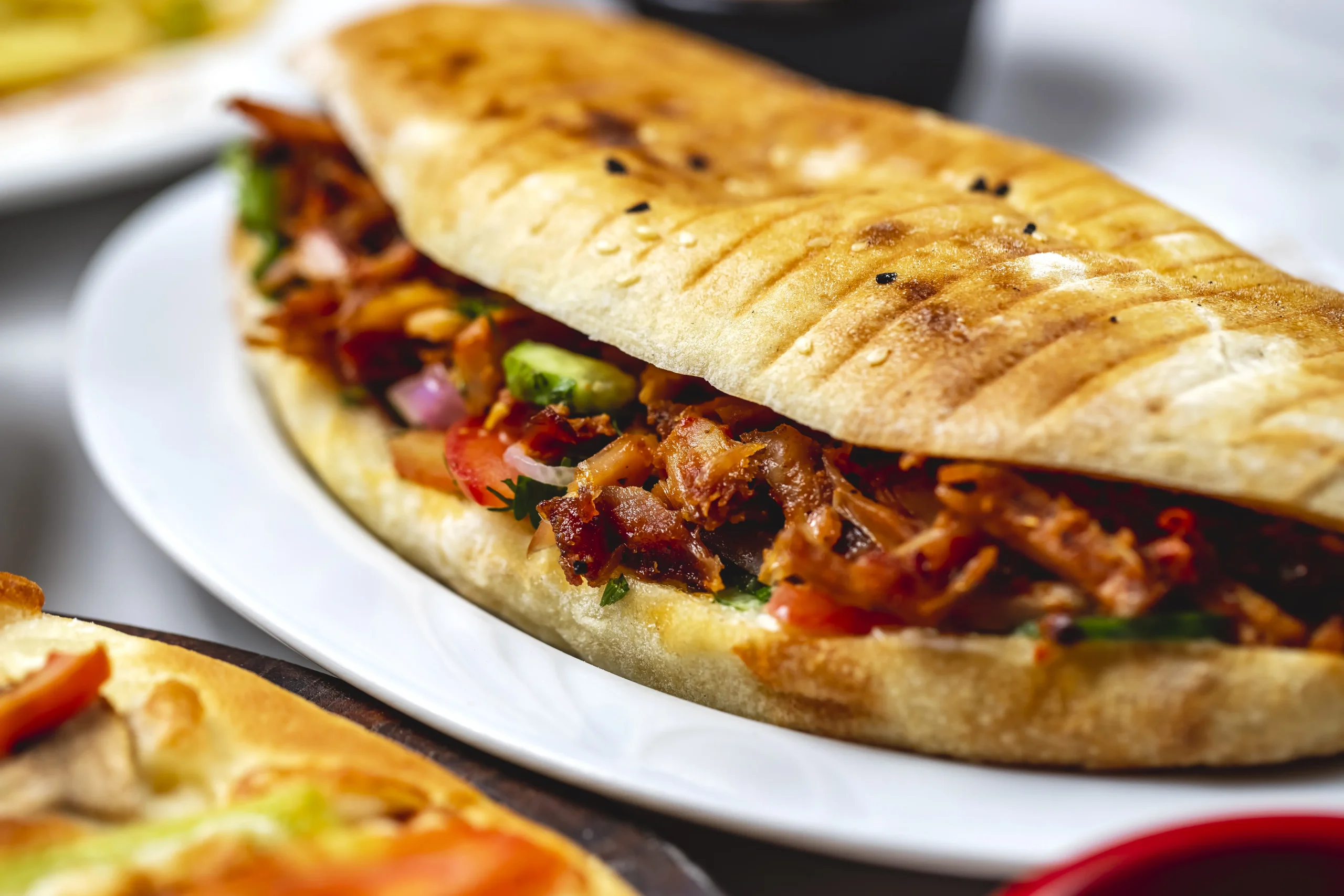
At its core, banh mi consists of a crusty baguette filled with a variety of ingredients. Common fillings include pork, pate, pickled vegetables, cilantro, and chili. The combination of flavors and textures – crunchy, soft, savory, tangy, and often spicy – makes each bite a delightful experience.
What sets banh mi apart from other sandwiches is the attention to balance. The pickled daikon and carrots provide a tart crunch that complements the rich meats, while the fresh herbs add a burst of freshness. It’s a handheld meal that’s perfect for breakfast, lunch, or a quick snack on the go.
Regional Specialties You Can’t Miss
Bun Cha: Hanoi’s Lunchtime Favorite
If you find yourself in Hanoi around midday, you’re likely to see locals flocking to small eateries for bun cha. This typical food of Vietnam is a Hanoi specialty that consists of grilled pork served with rice noodles, fresh herbs, and a dipping sauce.

The star of the dish is the chargrilled pork – both patties and sliced belly – which is smoky, sweet, and incredibly flavorful. It’s served alongside a bowl of fish sauce-based broth that’s both savory and slightly sweet. To eat bun cha, you dip the noodles and meat into the broth, creating a perfect bite each time.
What makes bun cha special is its interactive nature. You’re given all the components separately and can assemble each mouthful to your liking. It’s a dish that encourages slow eating and savoring, making it perfect for a leisurely lunch.
Cao Lau: Hoi An’s Signature Noodle Dish
Cao lau Hoi An is a noodle dish that’s synonymous with the ancient town of Hoi An. What makes it unique is its noodles is that people use water from a specific local well and ash from a particular type of tree. Whether this is strictly true today is debatable, but it adds to the mystique of the dish.
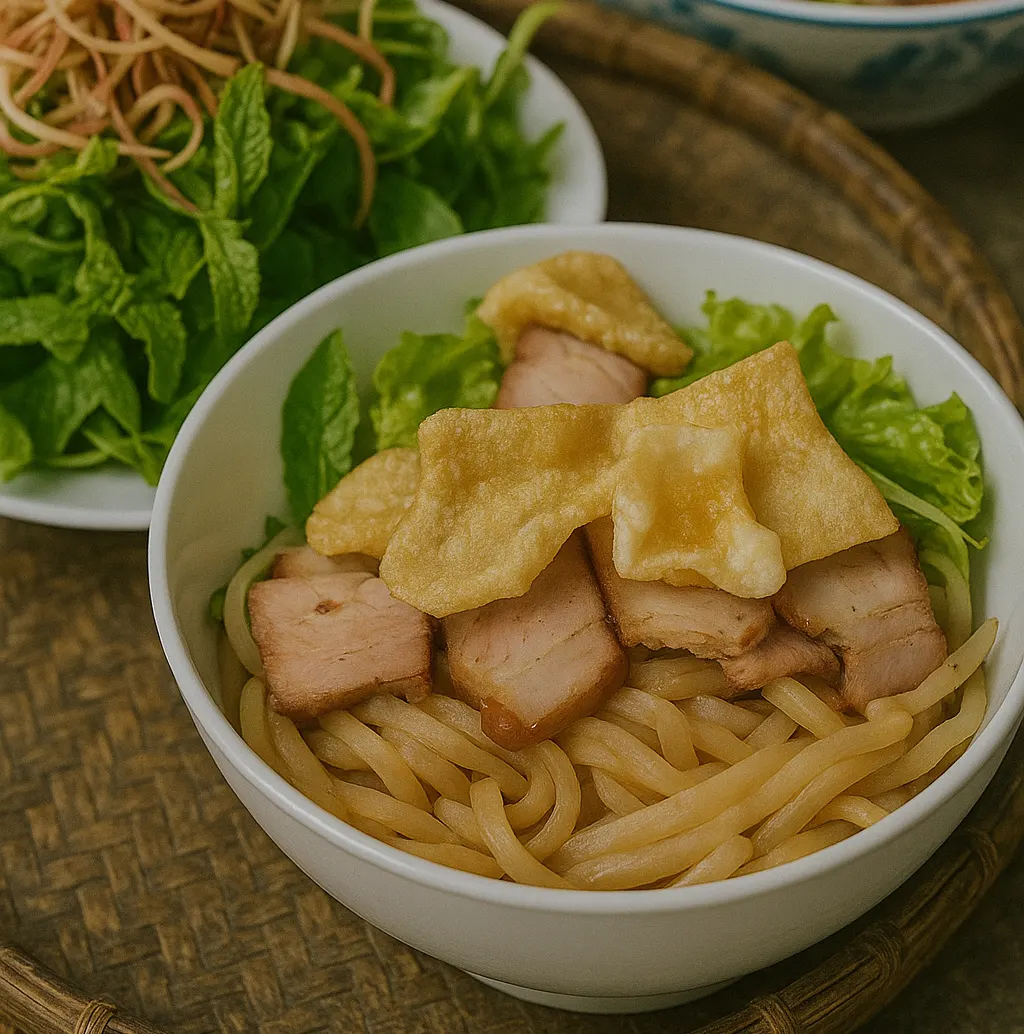
The thick, chewy noodles are topped with slices of char siu pork, crispy crackers, bean sprouts, and fresh herbs. The dish is barely dressed, with just a small amount of savory broth spooned over the top. This allows the flavors and textures of each component to shine.
Cao lau is a testament to Hoi An’s history as a trading port, with influences from Chinese, Japanese, and local Vietnamese cuisines all evident in the dish. It’s a must-try when visiting this charming town, offering a taste of history with every bite.
Street Food Delights
Banh Xeo: Crispy Savory Pancakes
Banh xeo, which translates to “sizzling cake,” is a crispy, savory pancake that’s a favorite street food throughout Vietnam. Despite its yellow color, there’s no egg in the batter – the vibrant hue comes from turmeric.
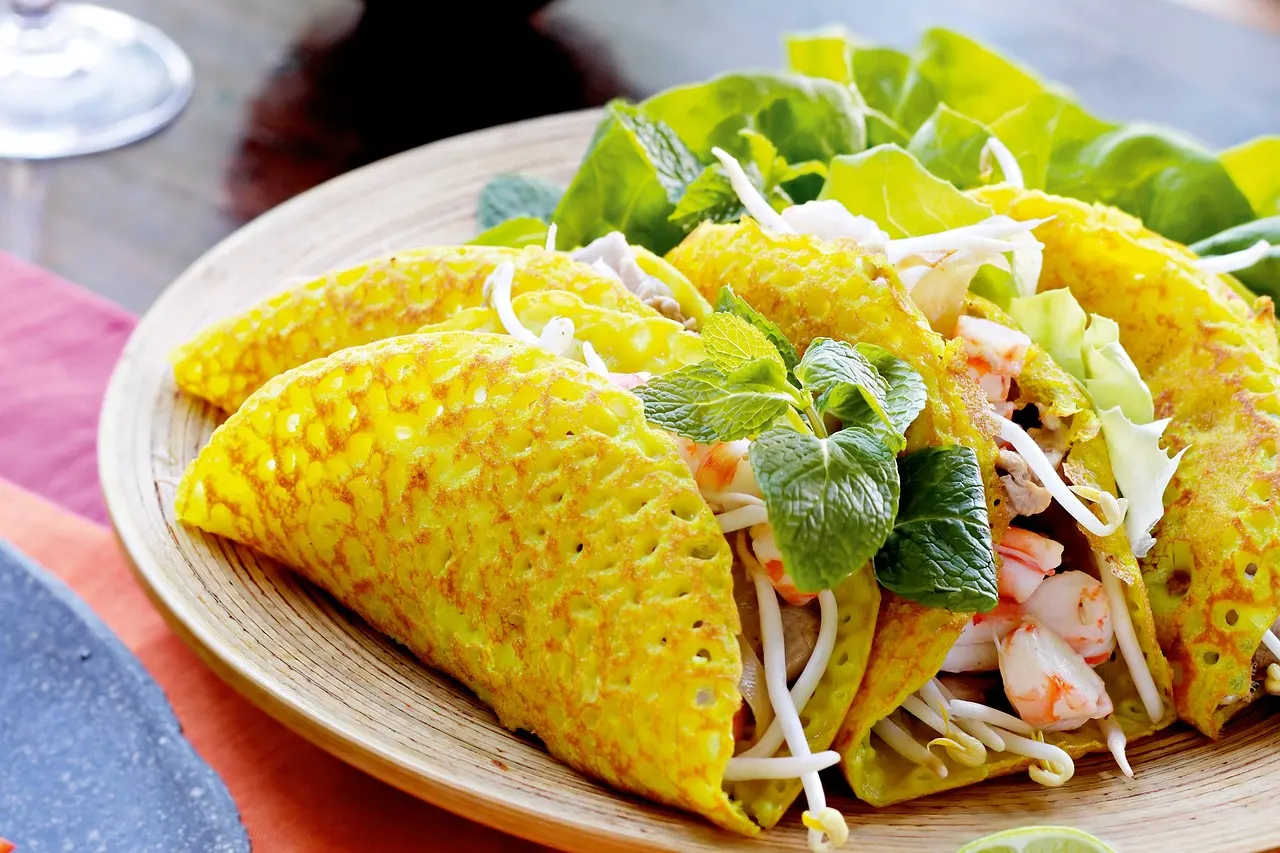
The pancake is made by pouring rice batter into a hot skillet, then adding pork, shrimp, and bean sprouts. As it cooks, the edges become delightfully crispy while the center remains tender. Banh xeo is typically served with a mountain of fresh herbs and lettuce leaves for wrapping.
To eat banh xeo like a local, tear off a piece of the pancake, wrap it in a lettuce leaf with herbs, and dip it in nuoc cham (a sweet and tangy fish sauce-based dipping sauce). The combination of crispy, soft, fresh, and savory elements makes for an explosion of flavors and textures in every bite.
Goi Cuon: Fresh Spring Rolls
Goi cuon, often referred to as fresh spring rolls, are a light and healthy option that’s perfect for Vietnam’s hot climate. Unlike their fried counterparts, goi cuon are made with rice paper wrappers that are simply softened in water.
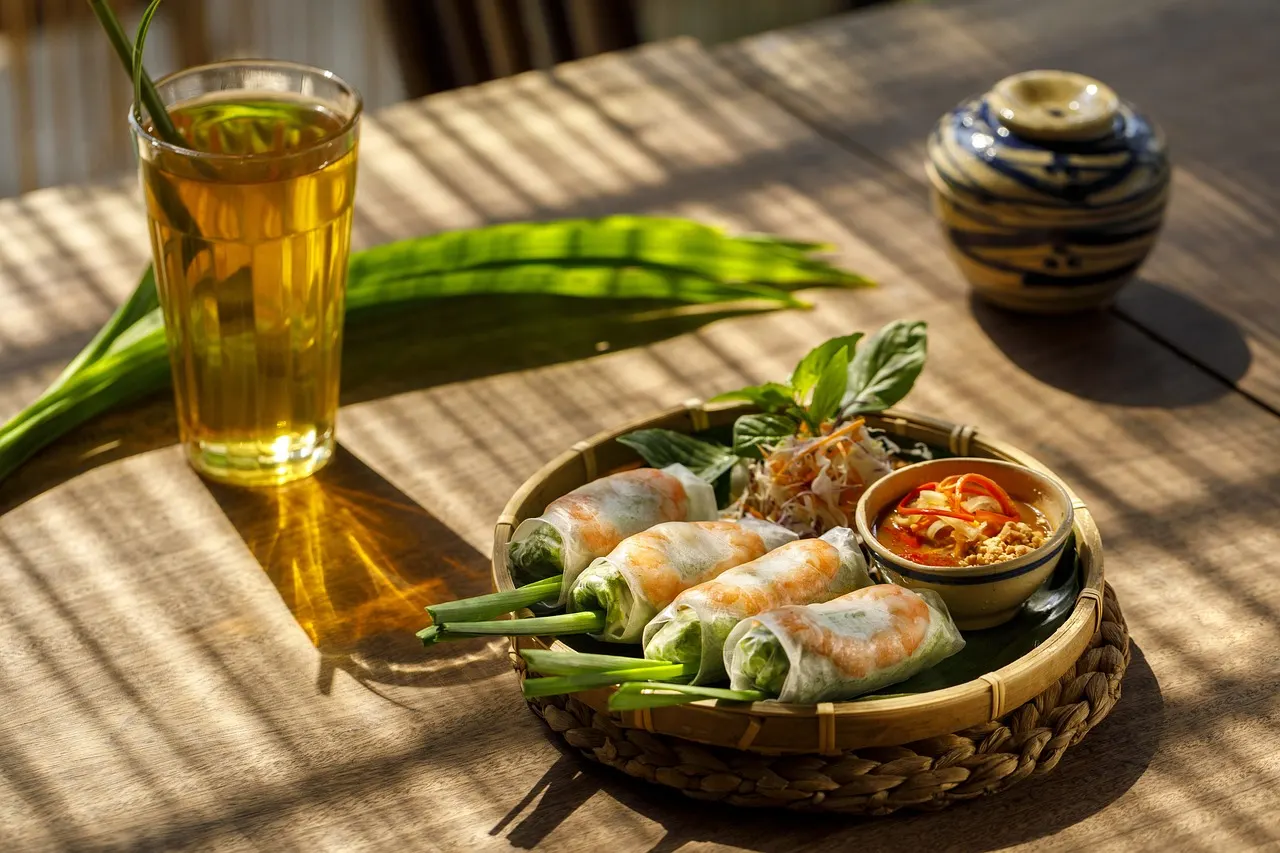
The rolls are typically filled with shrimp, pork, vermicelli noodles, and an abundance of fresh herbs. The translucent wrapper allows you to see the colorful ingredients inside, making goi cuon as visually appealing as they are delicious.
What really elevates goi cuon is the dipping sauce. Most commonly, they’re served with a rich peanut sauce, though some regions prefer a fish sauce-based dip. The sauce adds depth and complexity to the fresh, simple flavors of the roll itself.
Comfort Foods with a Vietnamese Twist
Chao: Rice Porridge for the Soul
Chao, Vietnam’s take on rice porridge or congee, is the ultimate comfort food. It’s often eaten for breakfast or when someone is feeling under the weather, but it’s delicious any time of day.

The base of chao is rice that’s been cooked down until it breaks apart, creating a thick, creamy porridge. From there, various toppings can be added. Common variations include chao ga (with chicken), chao vit (with duck), or chao ca (with fish).
What sets Vietnamese chao apart is the array of garnishes that come with it. Green onions, fried shallots, fresh ginger, and herbs are common additions that add layers of flavor and texture to the smooth porridge. A dash of fish sauce and white pepper completes the dish, creating a bowl of comfort that’s both soothing and complex.
Banh Cuon: Delicate Steamed Rice Rolls
Banh cuon are delicate, steamed rice rolls that showcase the subtlety of Vietnamese cuisine. The dish consists of thin sheets of fermented rice batter, steamed until they’re just set, then filled with a mixture of ground pork, wood ear mushrooms, and shallots.

The rolls are incredibly light and have an immensely satisfying and slightly chewy texture. They’re typically served with fried shallots, fresh herbs, and a dipping sauce. Some variations also include cha lua (Vietnamese pork sausage) on the side.
What makes banh cuon special is the skill required to make them. The rice sheets must be paper-thin yet strong enough to hold the filling. Watching a skilled cook prepare banh cuon is like watching a delicious magic show – sheets of batter are spreaded onto a cloth stretched over steaming water, cooked for mere seconds, then skillfully rolled and plated.
A Taste of Hoiana: Where Tradition Meets Luxury
Exploring Vietnamese Cuisine at Hoiana Resort & Golf
While exploring the typical foods of Vietnam, why not experience them in a setting that combines traditional flavors with world-class luxury? Hoiana Resort & Golf offers an unparalleled opportunity to savor authentic Vietnamese cuisine while enjoying the comforts of a premium resort.
At Hảo Việt, one of Hoiana’s signature restaurants, you can embark on a culinary journey through Vietnam without leaving the resort. The restaurant showcases dishes from all three regions of Vietnam, prepared with the finest local ingredients and presented with a touch of elegance.
Whether you’re craving a steaming bowl of pho for breakfast, a refreshing banh mi for lunch, or a sophisticated take on cao lau for dinner, Hảo Việt delivers authentic flavors in a refined setting. The restaurant’s chefs are passionate about preserving traditional recipes while adding subtle, contemporary touches that elevate each dish.
Hoiana Resort & Golf Address: Tay Son Tay Hamlet, Duy Hai Commune, Duy Xuyen District, Quang Nam Province, Vietnam




⭐⭐⭐⭐⭐
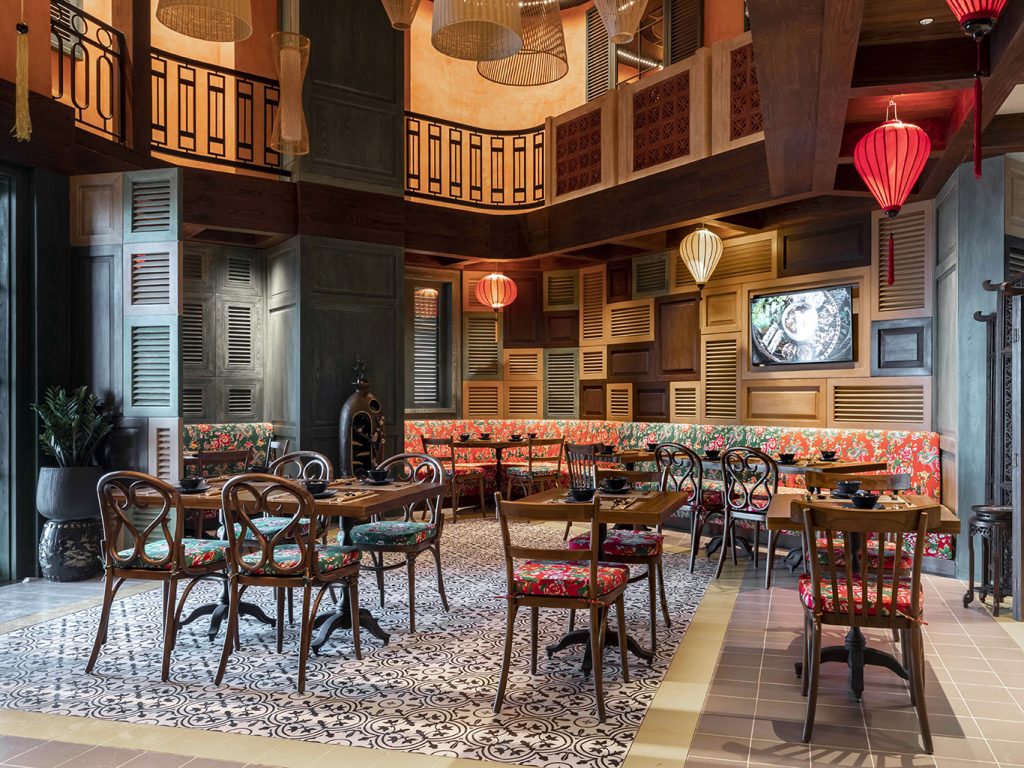
Culinary Experiences Beyond the Plate
Hoiana Resort & Golf goes beyond just serving typical Vietnamese food – it offers immersive culinary experiences that deepen your understanding and appreciation of the cuisine.
Consider participating in a cooking class where you can learn to make some of the dishes mentioned in this guide. Under the guidance of expert chefs, you’ll discover the secrets behind creating the perfect balance of flavors that Vietnamese cuisine is known for.
Conclusion: A Feast for the Senses
Vietnamese cuisine is a beautiful tapestry of flavors, textures, and aromas that reflects the country’s rich history and diverse landscapes. From the comforting warmth of a bowl of pho to the crispy delight of a well-made banh xeo, each dish tells a story of tradition, innovation, and the importance of fresh, quality ingredients.
Whether you’re slurping noodles at a bustling Hanoi street corner or savoring refined Vietnamese cuisine at Hoiana Resort & Golf, approach each meal with an open mind and eager palate. Vietnamese food is not just about sustenance – it’s a celebration of life, community, and the rich bounty of the land and sea.
Ready to embark on your Vietnamese culinary journey? Consider making Hoiana Resort & Golf your home base for exploring the flavors of Central Vietnam. With its blend of luxury amenities and authentic local experiences, it’s the perfect place to indulge in the best that Vietnamese cuisine has to offer.




